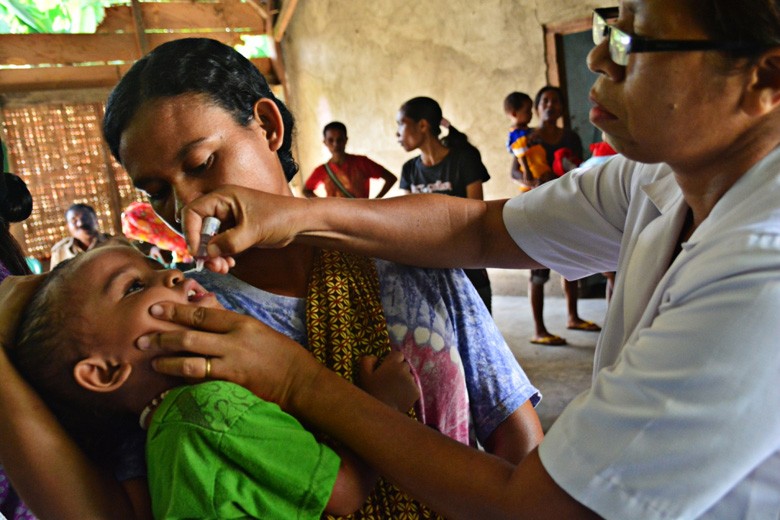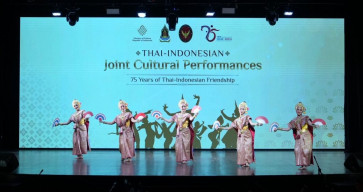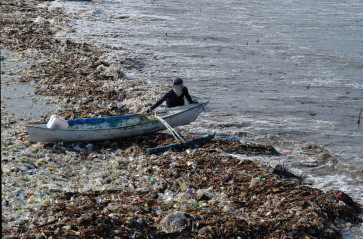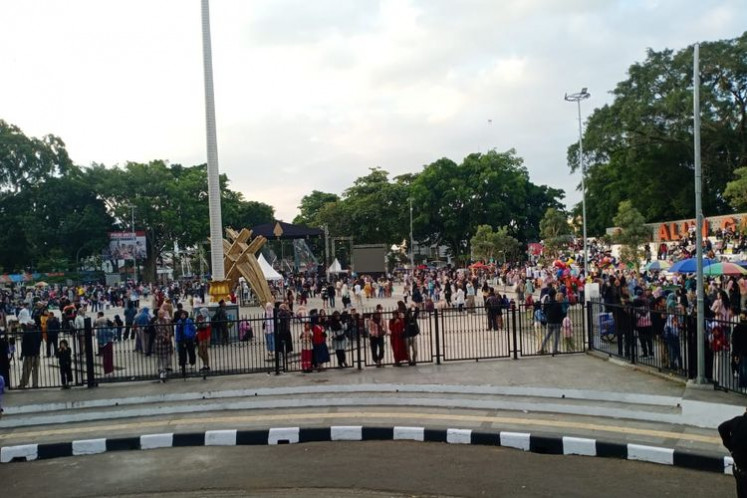Popular Reads
Top Results
Can't find what you're looking for?
View all search resultsPopular Reads
Top Results
Can't find what you're looking for?
View all search resultsBivalent oral polio vaccine critical to keep countries polio free: WHO
The World Health Organization has said measures taken by the world’s countries to switch from using the trivalent oral polio vaccine to the bivalent oral polio vaccine are critical to prevent vaccine-derived polio viruses (VDPVs) and stop all polio, caused by either wild or vaccine-derived viruses.
Change text size
Gift Premium Articles
to Anyone
 For healthier children: A health official from the Waelengga community health center (puskesmas) in Watunggene subdistrict, Kota Komba district, East Manggarai regency, Flores, East Nusa Tenggara, prepares a polio vaccine for a baby on the first day of national polio immunization week in March. (thejakartapost.com/Markus Makur)
For healthier children: A health official from the Waelengga community health center (puskesmas) in Watunggene subdistrict, Kota Komba district, East Manggarai regency, Flores, East Nusa Tenggara, prepares a polio vaccine for a baby on the first day of national polio immunization week in March. (thejakartapost.com/Markus Makur)
T
he World Health Organization (WHO) has said measures taken by countries to switch from using the trivalent oral polio vaccine to the bivalent oral polio vaccine are critical to prevent vaccine-derived polio viruses (VDPVs) and stop all polio, caused by either wild or vaccine-derived viruses.
Globally, nearly 155 countries switched to the bivalent oral polio vaccine under the Polio End Game Plan in April to further mitigate the small risk of VDPVs.
The WHO Southeast Asia region office says its 11 member countries have continued to be polio free. No child has been afflicted by wild poliovirus since the last case was reported from West Bengal, India, in January 2011.
WHO says that on very rare occasions, VDPVs are isolated from sewage samples. Prompt and adequate response to VDPVs detected in the sewage samples in the past has prevented any spread of these viruses in the community.
“It is important to note that such viruses have been detected from environmental samples only – no children have been affected nor cases of paralysis associated,” WHO said in a statement on Saturday.
“Detection of such rare VDPVs is not unusual or unexpected, and robust short- and long-term management strategies are in place to adequately manage the small risks associated with such isolates.”
Health ministries, supported by WHO and partners of the Global Polio Eradication Initiative (GPEI), have continued to conduct strong surveillance for any poliovirus from any source. They have also continued to strengthen overall population immunity to ensure children continue to be fully protected from lifelong polio paralysis.
According to the WHO, the Southeast Asia region was certified polio-free on March 27, 2014, and there is no threat to the region’s polio-free status from the VDPV isolates in the sewage samples. (ebf)









